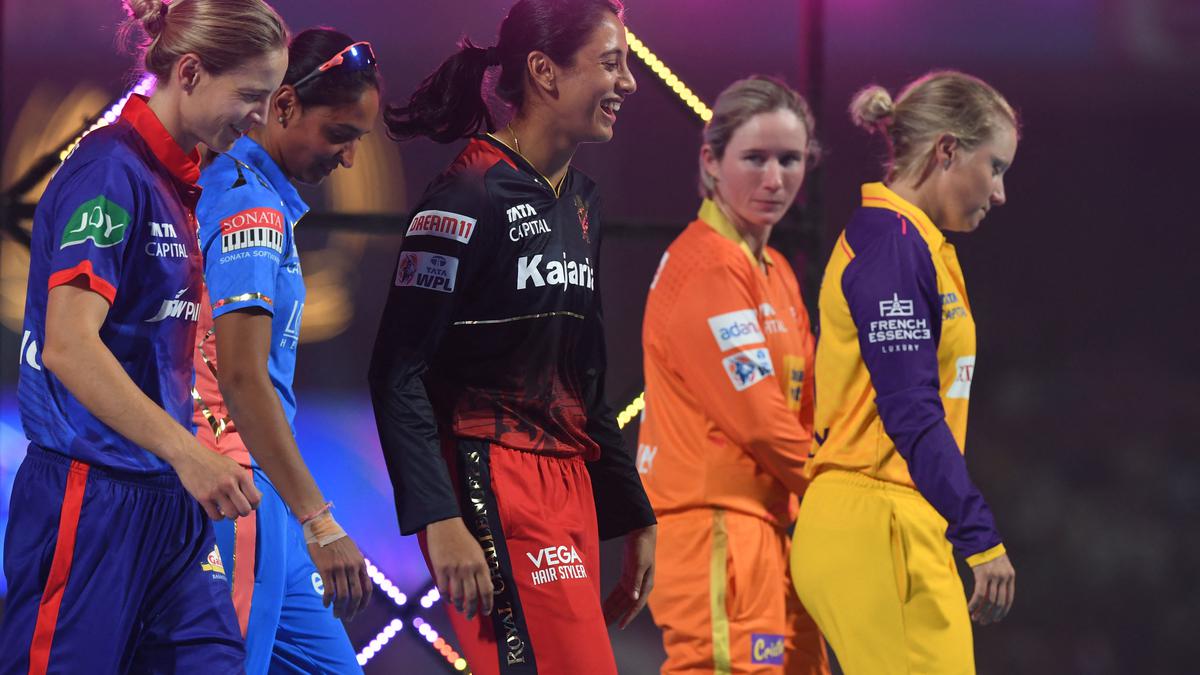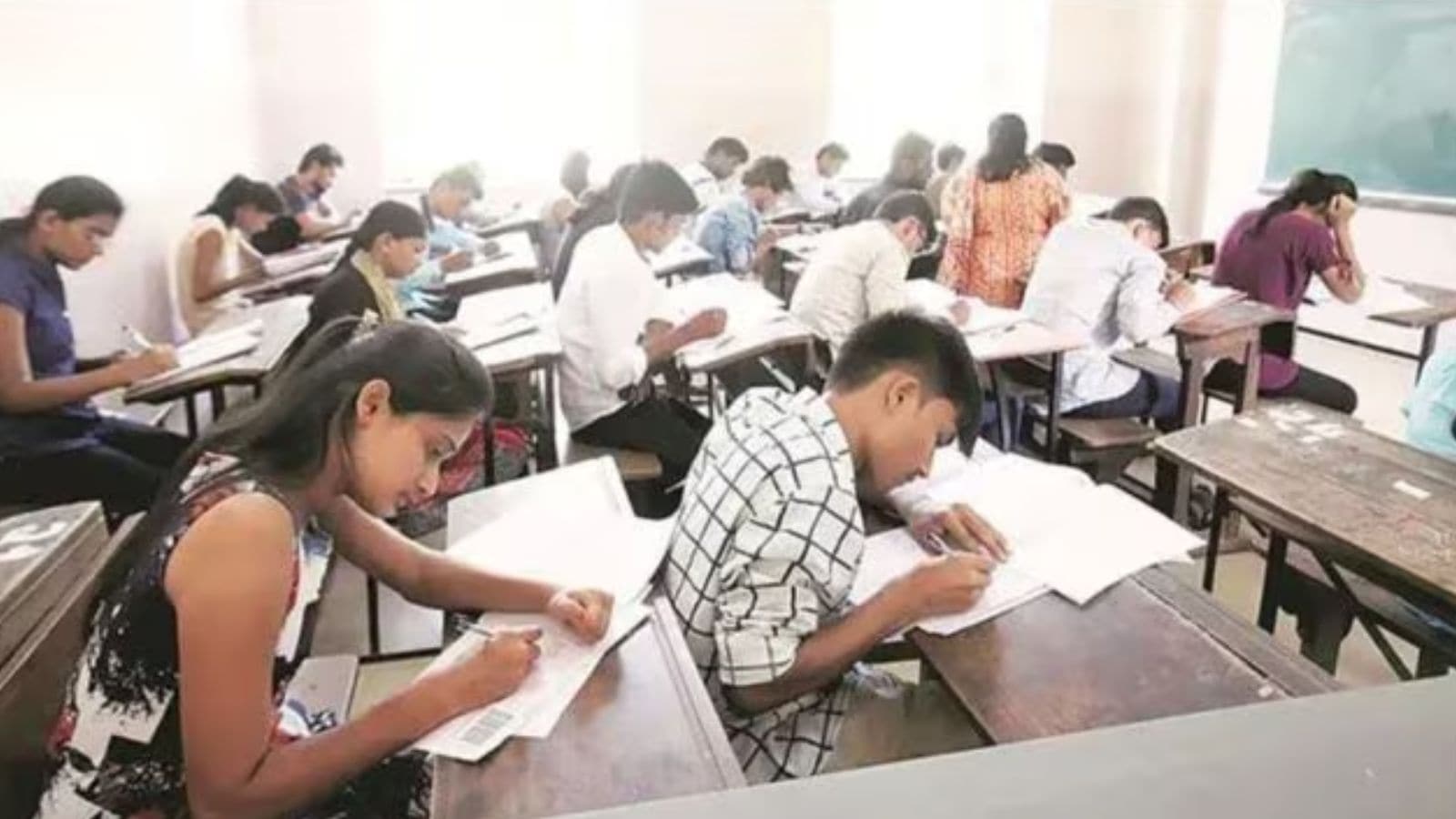WPL begins: Delhi Capitals’ captain Meg Lanning (L), Mumbai Indians’ captain Harmanpreet Kaur (2L), Royal Challengers Bangalore captain Smriti Mandhana (C), Gujarat Giants’ captain Beth Mooney (2R) and UP Warriorz captain Alyssa Healy (R) gesture during the opening ceremony of 2023 Women’s Premier League (WPL) at the DY Patil Stadium in Navi Mumbai on March 4, 2023.
| Photo Credit: INDRANIL MUKHERJEE
The inaugural edition of the Women’s Premier League (WPL) is a culmination of consistently superior T20 performances by women cricketers in recent years. In some T20 parameters, the performance of Indian women has matched or nearly matched that of the Indian men’s team in recent years. So, the WPL is not a token gesture to promote equal representation in cricket, but a hard-fought win for the exhibition of talent.
Also, the WPL is not a spur-of-the-moment idea. It is the latest move in a series of steps taken by the Board of Control for Cricket in India (BCCI) in the recent past. In 2018, the BCCI started the Women’s T20 Challenge with two teams — Trailblazers and Supernovas — led by star Indian players Smriti Mandhana and Harmanpreet Kaur, respectively. The tournament was expanded to three teams the next year. In October 2022, the BCCI implemented a ‘pay equity policy’ for its contracted women cricketers and raised their match fee to match the fee of their male counterparts.
The number of T20 games played by Indian women has also increased consistently over years and peaked in the latest season. In the 2022-23 season, India has already played 23 international T20 matches, the highest-ever. Chart 1 plots the number of international T20 matches played by India and all the teams put together. Both curves were on a near-vertical rise before COVID-19. Post the peak-pandemic period, the rise has continued. So, interest in the shorter format of the game has clearly grown.
Charts appear incomplete? Click to remove AMP mode
Chart 2 plots the number of T20I matches played by select teams season-wise, on the vertical axis. For instance, India has played 23 T20Is in the 2022-23 season, the most across all the teams in a season (the circle on top).
Chart 2 also plots the % of T20I wins (wins/matches) across select teams season-wise on the horizontal axis. In the two seasons mentioned above — 2022-23 and 2019-20 — India’s win % was 56% and 73%, respectively. On the other hand, the Australian team won 92% of the matches played in the 2022-23 season. England managed to win nine out of the 10 matches played in the same season. Given this, it was not surprising that many Australian and English players dominated the WPL auction.
That being said, Indian women have been consistently improving their scoring rate in T20s over the years. Chart 3 shows the season-wise average runs per over (RPO) scored by Indian women’s and men’s teams in T20s. The gap in the RPO between the men’s and the women’s teams has been consistently narrowing. In the last four seasons, India’s RPO in women’s T20 games has been above seven.
A similar trend can be seen in the boundaries scored too. The gap in the boundaries scored per match between the Indian men and women in T20Is is fast closing as shown in Chart 4.
Moreover, the monetary compensation that the WPL/IPL offers is a definite morale booster, especially for Indian women. Smriti Mandhana’s auction price was 580% more than her BCCI annual player contract, while it was only 114% more in the case of Viral Kohli as shown in Table 5.
The WPL has also helped revive the careers of relatively older players such as Saika Ishaque, who is currently topping the wicket charts in the tournament, though she is yet to make an India debut. It has also helped younger players such as Shefali Verma, who has currently hit the most sixes in the WPL, to establish their dominance and seal their place in the Indian team.
vignesh.r@thehindu.co.in, rebecca.varghese@thehindu.co.in
Source: ESPNcricinfo’s Statusguru, Women’s Premier League website, Indian Premier League website, BCCI press releases
Also read | Women’s Premier League: Beginning of new dawn for India’s Gen-Next
Listen to our Data podcast: What decides women’s marital age — wealth, education or caste | Data Point podcast






